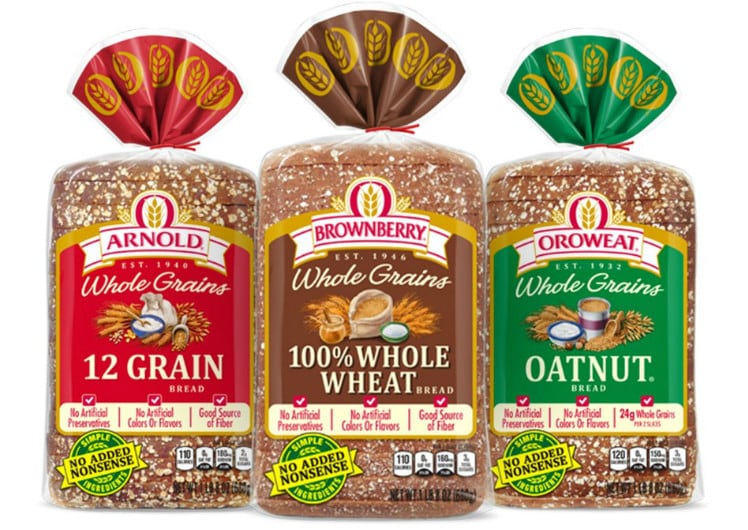‘No Added Nonsense’ means the entire whole grain line, which includes Oatnut, 100% Whole Wheat, 12 Grain, Healthy Multi-Grain and Health Nut, will no longer carry any artificial preservatives, colors or flavors.
Grupo-Bimbo also eliminated monoglycerides, Diacetyl Tartaric Acid Esters of Monoglycerides (DATEM) and high-fructose corn syrup from these breads.
"Our consumers told us they expected a bread baked using traditional methods that feature real, easy to pronounce ingredients,” said Jon Silvon, VP of marketing for Bimbo Bakeries USA.
No Added Nonsense
The company said the move makes it 'the largest premium bread brand in the nation to remove artificial ingredients traditionally used in large scale industrial baking.'
Barry Frake, VP of R&D, added, "Our 'No Added Nonsense' initiative allows our brands to provide consumers with quality ingredients our founders would be proud of.”
Lorenzo Servitje, the son of a Spanish immigrant, established the company in Mexico in 1945. Today, Grupo Bimbo has an annual revenue around $15bn, with operations in 32 countries on four continents.
Arnold, Brownberry and Oroweat launched an organic line last summer. Each brand also offers an organic version of 100% Whole Grain, Rustic White and 22 Grains and Seeds, while Oroweat added two other organic wheat breads and three ‘thin-sliced’ loaves.
DATEM replacements
Bread and baked goods commonly use DATEM to improve volume, crumb structure and dough extensibility.
To answer consumer demand for clean labels, according to the American Bakers Association (ABA), the industry is slowly replacing the additive with alternatives including:
- wheat protein isolate
- lecithin and soy emulsifiers
- lipase, xylanase and phospholipase enzymes
- lipids derived from animal, vegetable fat or glycerides
Wheat protein isolates have been shown to actually decrease a product’s carbohydrate content while increasing protein content.
Because enzymes denature during baking, they do not appear on ingredient labels, ABA says.
These substitutes can also enhance volume and structure in gluten-free or alternative-grain breads.


